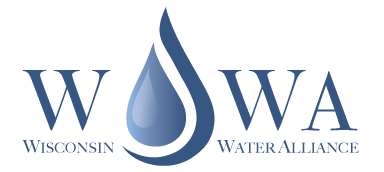Natural Resources Board Takes Action on PFAS
At its meeting last week, the Natural Resources Board (NRB) took action on three rules packages that WDNR advanced concerning PFAS, essentially aligning recommended state PFAS standards with federal guidelines. The two rules that were approved by the NRB now move forward to the Governor for signature and then on to the state legislature for review.
- First, on a tie vote (3-3, with one board member abstaining) the NRB declined to advance the “Cycle 10” NR 140 groundwater standards. This rule proposed establishing 25 new or revised groundwater quality standards, including an enforcement standard (ES) for combined PFOA and PFOS of 20 parts per trillion (ppt) and a preventive action limit (PAL) of 2 ppt. The Cycle 10 package also proposed a reduction in the standard for trichloroethylene (TCE), a volatile organic compound. The proposed groundwater standards rule will not move forward to legislative review and WDNR will have to restart the lengthy rulemaking process.
- Second, the Board voted to advance state drinking water quality standards (state MCLs) for PFOA and PFOS. However, the Board did not approve the individual and combined standard of 20 ppt that was proposed by WDNR, instead opting for a 70 ppt standard proposed via amendment during the meeting. The 70 ppt standard is consistent with EPA’s current Lifetime Health Advisory Levels for PFOA and PFOS.
- Finally, the Board unanimously advanced a rule to establish surface water quality criteria for PFOA and PFOS. For PFOS, the proposed rule establishes a standard of 8 ppt in all surface waters. For PFOA, the proposed rule establishes a standard of 20 ppt for surface waters designated for use as public water supplies and 95 ppt for all other surface waters. Of course, the surface water standards were the target of the effluent sampling for PFAS launched last spring.
Wisconsin Water Alliance was pleased to be part of a coalition that worked toward this outcome. Further, we appreciate the NRB’s role in recognizing the value in following the established federal guidelines. WWA recognizes the importance of protecting our state’s water resources while balancing that with standards that are sensible. We will continue serving as an active voice in the fight to allow responsible water users to power our state.

